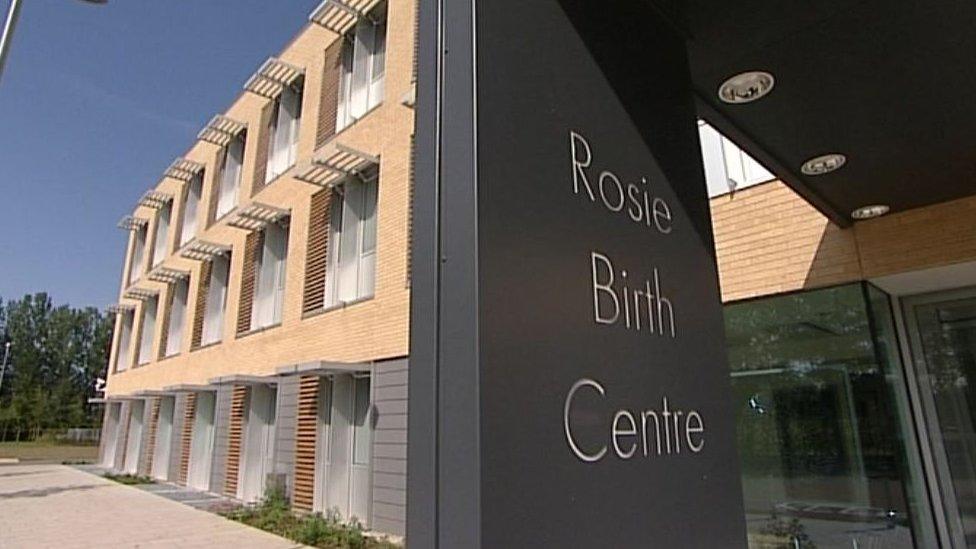'Serious concerns' voiced over stillbirth documentary filming
- Published
Cameras with warnings have been put up in Clinic 23 of the Rosie Hospital
A charity says it has "serious concerns" about a hospital which has allowed women to be unwittingly filmed at critical points in their pregnancy.
Cameras and a written notice have been put up at the Rosie Hospital, Cambridge for a Channel 4 stillbirth documentary.
One mother who was filmed said she thought the idea of installing cameras was "morally wrong".
Production company True Vision said no footage would be viewed or downloaded without the patient's permission.
The cameras, which film 24 hours a day, are in a section of the maternity unit mothers are taken to if they have serious problems after their first trimester.
The devices have been in position for three months.
'Reasonable expectation'
Healthcare professionals do not tell patients the cameras are there but notices in the room do warn that filming is taking place.
If there is a stillbirth at a later date, a member of staff asks if the woman would give her consent to talk to the film crew and give permission for the footage to be shown.

Cambridge University Hospitals said it took part in the documentary after women claimed there was not enough information on stillbirth
The recording is automatically deleted after a certain amount of time if permission is not given.
Tara, a mother who discovered she had been filmed but whose pregnancy turned out to be healthy, said she felt the filming was "morally wrong" adding: "I think if I was receiving bad news the last thing I would want is to share it with a camera."
The human rights charity Birthrights has written to the hospital saying it had "serious concerns" over "whether consent is being lawfully obtained and whether women are being treated in a respectful way".
The charity, which acknowledged the "potential benefits of a sensitively made documentary" about stillbirths, said: "Such a filming project would engage individuals' right to privacy, which is a reasonable expectation for medical procedures, consultations and examinations."
A spokesman for True Vision said: "Patients are made aware that that filming is taking place in parts of the clinic but that no footage of them will be viewed or downloaded in any way without their express permission.
"Anyone approached to take part in the programme will have the implications of taking part in filming clearly explained and all contributors have the right to withdraw their consent at any time.
Dr Jeremy Brockelsby, clinical lead for women's services at Cambridge University Hospitals, said it took part in the documentary after women said there was not enough information on stillbirth.
He added: "Because of the sensitivity of the subject, we established a robust consent process with True Vision to safeguard women who visit [the critical care clinic]."